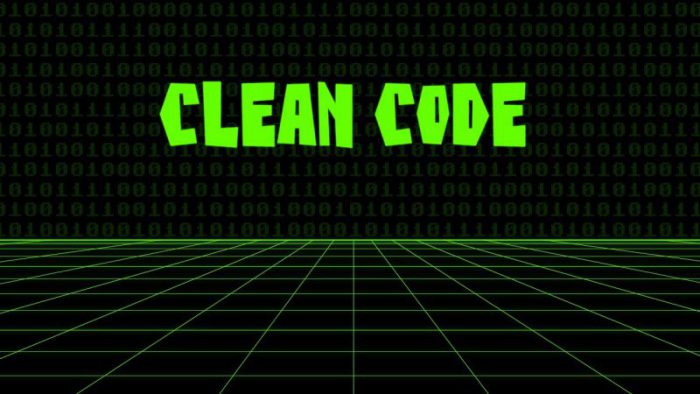Clean code is a reader intensive development style that produces software that is easy to read, write and maintain. Developers are often tempted to consider their work complete when the application operates as expected. But we are not merely writing code for computer consumption.
We all know that programming is the art of telling another human what one wants the computer to do.
Clean code is about knowing that your audience is not just a computer, but real-life humans! With this norm in mind, let's review some simple reasons to why clean code matters.
1. You're an author
An author is someone who practices writing as a career. Developers write all day long. However, it is easy to forget that each line of code we write is expected to be recited 10 or more times by humans. These humans are our fellow co-workers, who are busy fixing bugs and adding features.
Great authors are known for writing books that tell clear, compelling stories. They use tools like chapters, headings, and paragraphs to clearly organize their thoughts evidently and guide their reader. Developers work in a very comparable system, by using different jargon of namespaces, methods and classes.
Clean coders use these tools intelligently to manage the complexities and tell a clear story.
2. It is foundational
In the recent years, software practices like professional refactoring and unit testing have received immense attention. These practices hoist code quality and maintainability. Executing clean code principles is an opening skill that pays off, especially well when it is time to refactor a code or bring a code under test. Clean code principles produce highly modular source codes which are easier to read and test. If you entertain these practices as part of a house, clean code is the foundation of it.
3. Justify your technique
Imagine yourself sitting in a technical interview. If you are asked about the quality of your code, can you provide a professional and a rational justification? Or would this be just you?
If that is all you can say about writing clean code, then it’s a bad sign. If you have never systematically considered the quality of your coding style, there is ample amount of opportunity for improvement. The developers who write clean code are able to carry many solid patterns, activities and techniques used to keep a code clean. Nevertheless, clean code doesn't come about by accident. It requires a thoughtful and steady focus on clearly transmitting intent.
Structuring a vocabulary around clean code is not just useful for interviews and enriching your own code quality. It also nurtures level-headed conversations in code reviews by starting a common terminology and framework for discussing the readability of the code.
4. Reading is hard
Professional software companies often pride themselves for their knack to solve difficult problems. However, writing code is relatively easier than reading. This is why so many developers are attracted to drafting rather than doing the hard work of reading and twigging the existing code. Since reading code is challenging, if you write code that you are barely able to follow as you write it, you will be unable to comprehend it later. Professional developers write so many codes, that after a few weeks of their separation, most of the structure and design choices fall out of remembrance. It is like investigating a project with a fresh viewpoint. Not being able to realize your own code after a few weeks can be a really disheartening situation.
5. Technical debt is depressing
Writing confusing and sloppy codes inject technical debt into projects. And while it can be useful when considered in context, too much of technical debt is discouraging and pushes talent away from the organization. When easy things start becoming hard, developers often start to vote with their feet and go somewhere else. Developers derive more job satisfaction out of the quality of their work than the quantity. Technical debt decreases the chance of reprocessing and sets a low bar for quality all through the rest of the code base.
6. You are Lazy
Professional developers endeavor to be the good kind of lazy. This sluggishness is based on laying extra care onto the code so that it is not so hard to write honestly, and is easier to work with in future. Writing clean code doesn't take long. And once you comprehend the principles, you can actually code more quickly because brief and expressive codes are easier to manage.
When stressed, it's tempting to cut the corners and ignore the best practices. However, being sloppy eventually slows us down in the long-term, as a result of the increased rate of bugs and the long-term costs of future maintenance. History is evident; it is unlikely that you will find time to clean it up later, so why doesn't do it right in the first place itself?
7. Don't be a verb
While the other reasons are solid, this one is the clincher: Everyone is aware of the former developer whose name became a verb to define the dirty code.
Comments like this are a kiss of death for long-term employment prospects. Being acknowledged in writing clean code is an inordinate way to assure that your co-workers look forward to work with you and your code henceforward.
Summing up:
There are three essential principles to write clean code:
a) Select the right tool for the job
b) Enhance the signal-to-noise ratio
c) Try writing self-documenting code



